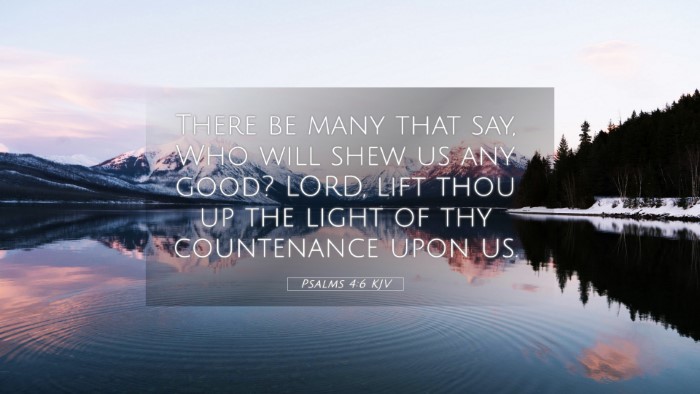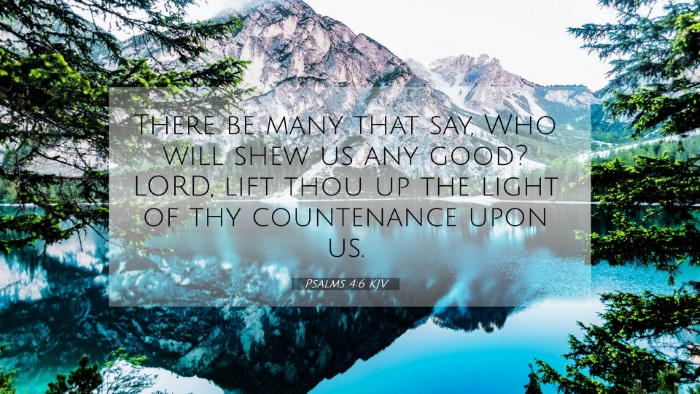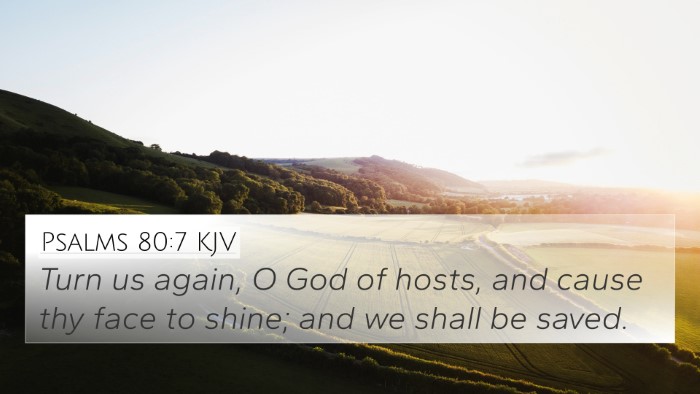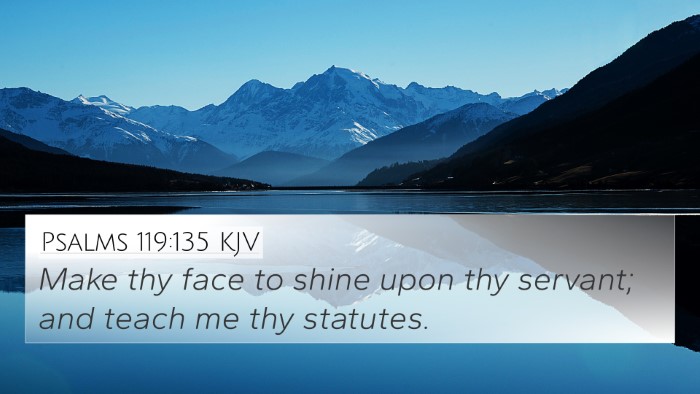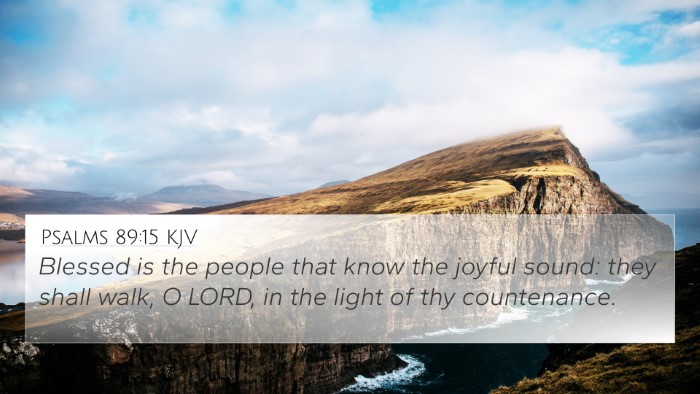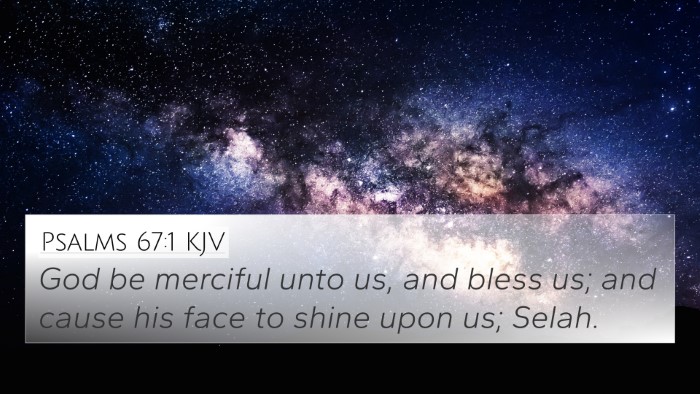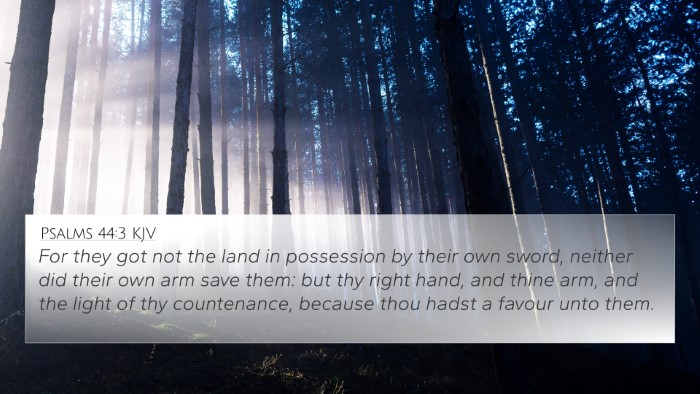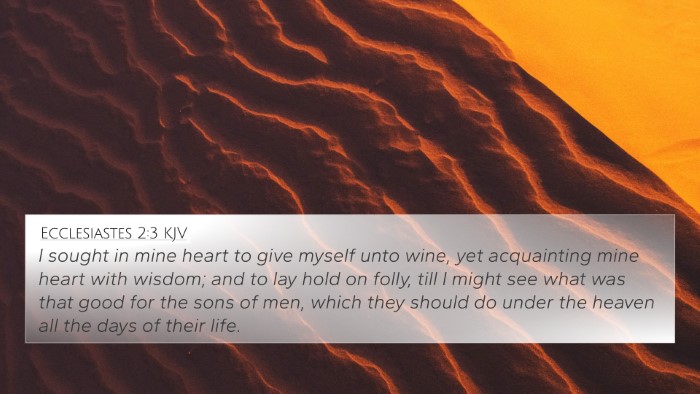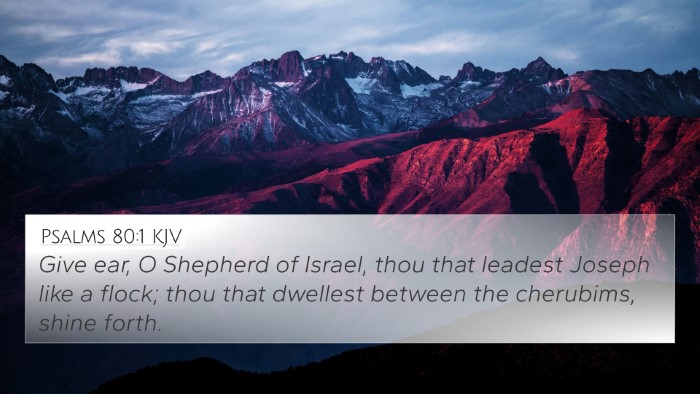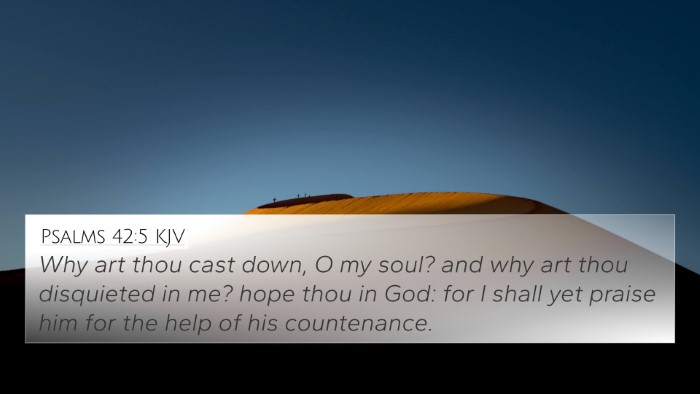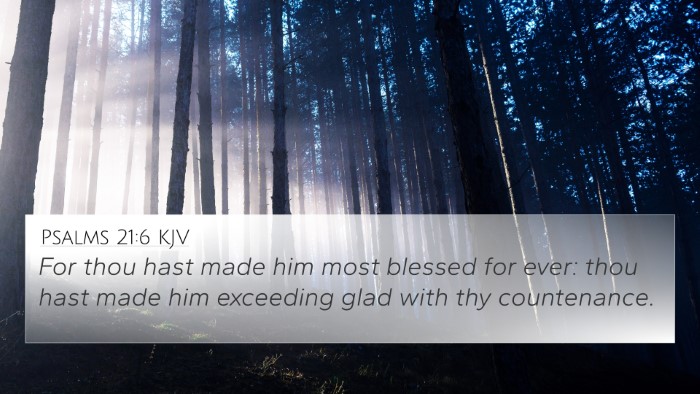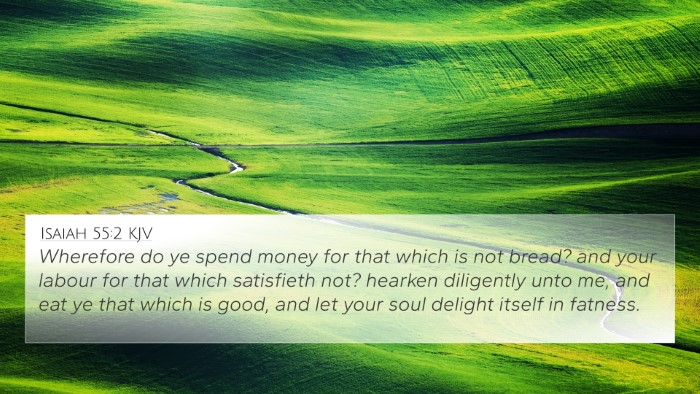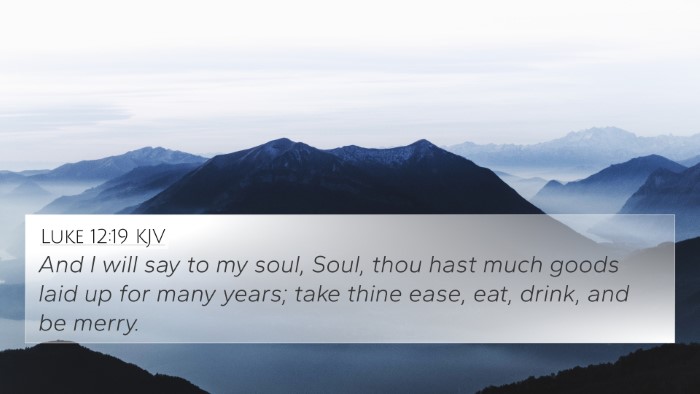Psalms 4:6 - Understanding the Meaning
Psalms 4:6 states:
"There are many who say, 'Who will show us any good?' Lord, lift up the light of Your countenance upon us."
This verse reflects a profound inquiry about human desires for goodness and divine favor, inviting deeper exploration of its significance through biblical commentaries.
Insights from Public Domain Commentaries
This section consolidates insights from respected biblical commentators: Matthew Henry, Albert Barnes, and Adam Clarke, to unravel the meanings of Psalms 4:6.
Matthew Henry's Commentary
Matthew Henry emphasizes the contrast between human despair and divine enlightenment. He notes:
- The phrase "Who will show us any good?" represents a common human frustration, a searching for satisfaction and joy in a world filled with trouble.
- Henry interprets this cry as a plea for God's intervention, urging believers to seek the light of His presence as a source of true goodness and peace.
Albert Barnes' Commentary
Albert Barnes provides additional layers of meaning by highlighting:
- The assurance that while the world may express skepticism about goodness, the faithful are reminded to look towards God, whose countenance is synonymous with favor and blessing.
- Barnes elucidates that the "light of Your countenance" signifies divine guidance that illuminates the path of righteousness, providing comfort amidst uncertainty.
Adam Clarke's Commentary
Adam Clarke further interprets the verse by focusing on the communal aspect of the question:
- He suggests that the question posed reflects the hearts of many seekers who, amidst despair, yearn for divine assistance and assurance of goodness.
- Clarke connects this yearning for divine favor as a response to societal difficulties, identifying a universal human condition that calls for God's light.
Biblical Cross-References
To enhance the understanding of Psalms 4:6, the following Bible verses exhibit thematic connections and can be cross-referenced:
- Numbers 6:25: "The Lord make His face shine upon you, and be gracious to you."
- Psalm 31:16: "Make Your face shine upon Your servant; save me for Your mercies' sake."
- Psalm 67:1: "God be merciful to us and bless us, and cause His face to shine upon us."
- Proverbs 4:18: "The path of the just is like the shining sun, that shines ever brighter unto the perfect day."
- Micah 7:7: "Therefore I will look to the Lord; I will wait for the God of my salvation; my God will hear me."
- John 8:12: "Then Jesus spoke to them again, saying, 'I am the light of the world. He who follows Me shall not walk in darkness, but have the light of life.'
- 2 Corinthians 4:6: "For it is the God who commanded light to shine out of darkness, who has shone in our hearts to give the light of the knowledge of the glory of God in the face of Jesus Christ."
Applications of Cross-Referencing
Engaging with cross-references allows for a richer understanding of scriptures. Below are tools and methods for utilizing biblical cross-referencing:
- Utilizing a Bible Concordance: This tool helps locate verses by keywords or themes.
- Bible Cross-Reference Guide: A structured approach to connecting related scriptures.
- Cross-Reference Bible Study: Engaging with multiple verses on a theme or topic fosters a deeper understanding.
- Identifying Old and New Testament Connections: Recognizing how verses reflect overarching themes enriches the study experience.
- Cross-Referencing Bible Study Methods: Explore narrative links, thematic similarities, and doctrinal teachings across biblical texts.
Thematic Connections
Through identifying biblical parallels and cross-references, deeper themes emerge that underscore the interconnectedness of scripture:
- The Search for Divine Goodness: The desires expressed in Psalms resonate with the thematic quest for goodness throughout the Bible.
- Light as a Symbol: Both Old and New Testaments utilize light as a representation of hope, guidance, and divine presence.
- Common Human Struggles: The questioning in Psalms 4:6 is a reflection of the universal searching for meaning in difficulties, a theme present throughout scripture.
Conclusion
Psalms 4:6 encapsulates the human desire for goodness and divine favor amidst uncertainty. By employing methods of cross-referencing, one can unearth a myriad of connections that deepen our understanding of this poignant plea. The rich insights from Matthew Henry, Albert Barnes, and Adam Clarke encourage believers to seek the Lord's light in their lives, illustrating the profound impact of scriptural analysis and interconnectedness.

